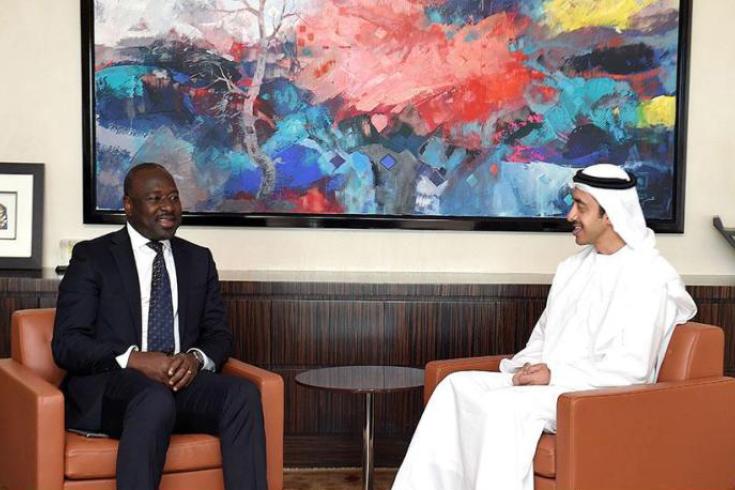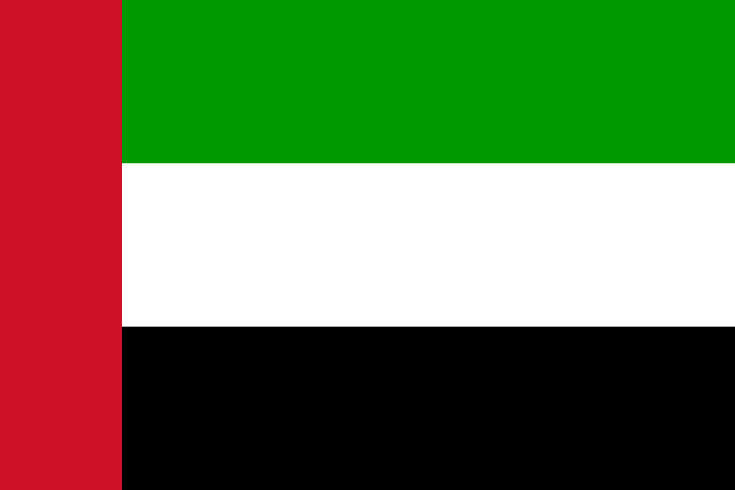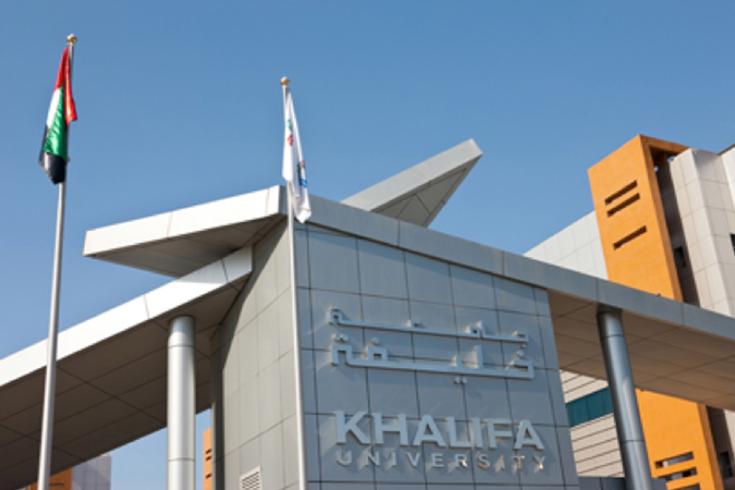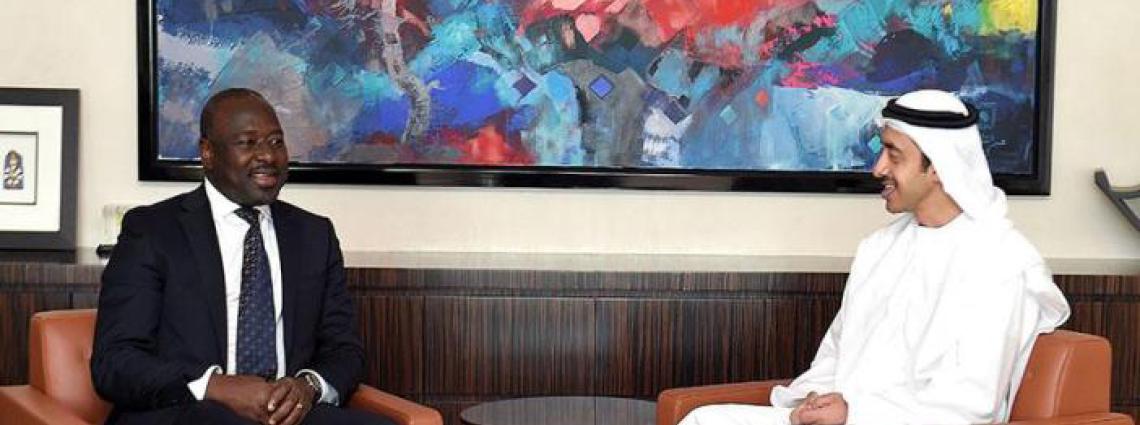The United Arab Emirates and the CTBTO
Vienna, 13 November 2014

Foreign Minister of the UAE, HH Sheikh Abdullah bin Zayed Al Nahyan (right) with CTBTO Executive Secretary Lassina Zerbo, Abu Dhabi, 12 November 2014.
The UAE’s leadership role in nuclear non-proliferation
The UAE was one of the first countries to sign the CTBT in September 1996, subsequently ratifying in September 2000. The country has consistently supported the Treaty at different United Nations fora and participated in Article XIV conferences aimed at promoting the Treaty's entry into force, see UAE statement from the last conference in 2013.
The Foreign Minister expressed his country’s readiness to support the work of the CTBTO, particularly with regard to technical capacity-building activities in developing countries. He stated that technical cooperation with developing countries is an important vehicle to promote the CTBT and ensure wider understanding of its role in the non-proliferation regime.

The national flag of the United Arab Emirates.
The Group of Eminent Persons – promoting the CTBT’s entry into force
During his stay, Zerbo also visited Khalifa University where he was received by Tod Laursen, the President of the University, Philip Beeley, the director of the Gulf Nuclear Energy Infrastructure Institute (GNEII), as well Alexander Solodov, the faculty coordinator of the GNEII. The Executive Secretary pointed out that there is a clear link between the aims of CTBTO and Khalifa University: both provide leadership in implementing solutions to the important challenges of international security where science, technology and international affairs intersect.
Finally, the Executive Secretary was given a tour of the National Center of Meteorology and Seismology, which is the only seismic monitoring centre in the UAE. The Centre’s Executive Director Abdullah Ahmed Al Mandoos spoke about its role in environmental protection and meteorological forecasting. The Centre also conducts research in these fields, particularly cloud seeding for rain production. It was agreed during the visit that the Centre will be designated as a National Data Centre in the UAE.
From the UAE, the Executive Secretary will continue to Jordan to observe the ongoing Integrated Field Exercise 2014 – IFE14.

Khalifa University of Science, Technology and Research was inaugurated in 2007 as part of an Abu Dhabi Government initiative.
10 Nov 2014
